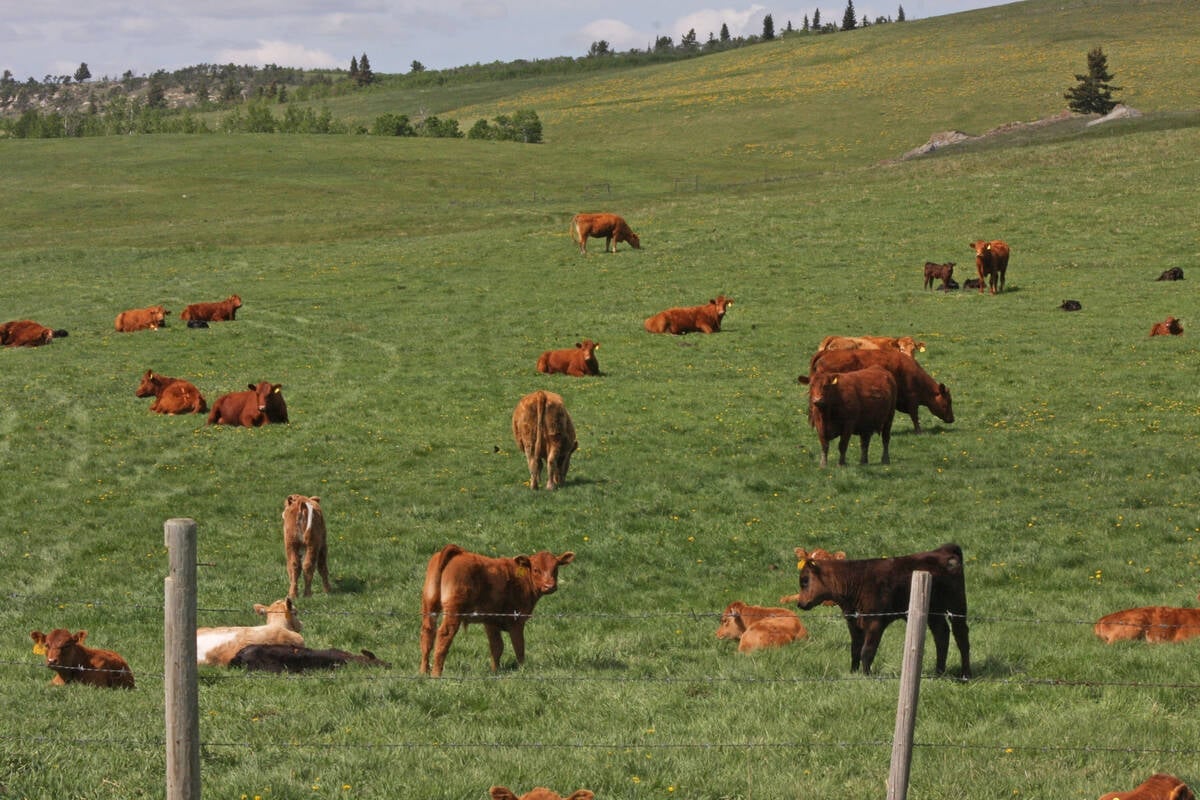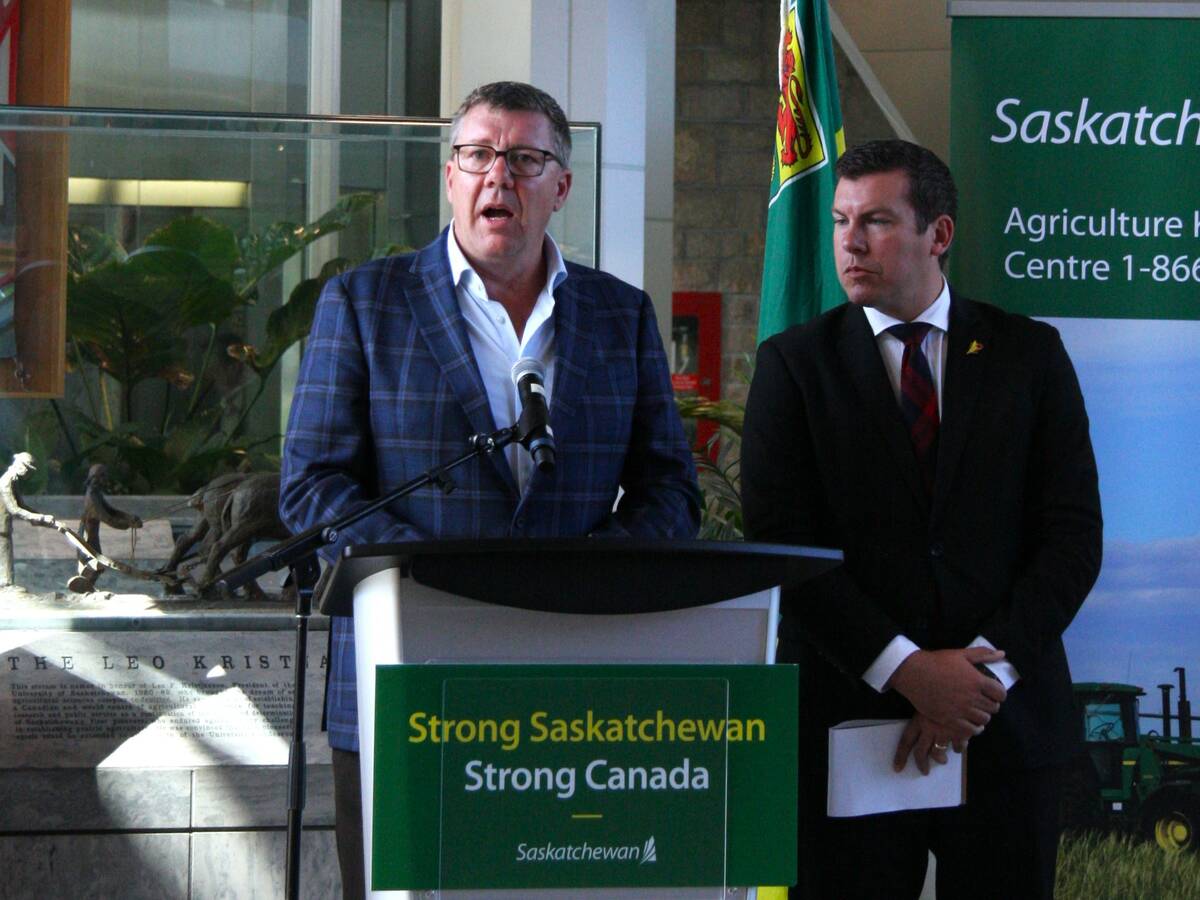Saskatchewan has diversified its canola, pulse and other exports over the last few years to more than 160 countries, yet China remains the second largest market for canola exports, buying close to $4 billion of the oilseed.
Canada seeds more than 21 million acres of canola a year with more than half of them in Saskatchewan.
The province seeded 12 million acres of the oilseed in 2025, nearly one-third of its seeded acres.
Read Also

Livestock leads Canada’s farm economic outlook
Forecasts by a major Canadian farm lender featured good and bad news on the financial health of both farmers and Canadians at large.
“I think we need to understand precisely the volume of what we produce in this province, whether it be oil, whether it be wheat, whether it be canola,” Saskatchewan premier Scott Moe said at a press conference held in Saskatoon late last month.
He likened China’s tariffs to an attack on Saskatchewan’s livelihood, saying the retaliatory tariff of 100 per cent on canola oil and meal, plus the recently added 75.8 per cent tariff on canola seed, at this time of year is a “surgical initiative” harming the canola industry and the income of Saskatchewan producers and people.
The press conference was held following a meeting between the Saskatchewan and federal governments as well as industry organizations to discuss ongoing canola challenges with China as well as trade with the United States.
Moe, along with provincial trade and export development minister Warren Kaeding and agriculture minister Daryl Harrison, met with federal agriculture minister Heath MacDonald, Buckley Belanger, federal secretary of state for rural development, and Kody Blois, parliamentary secretary to the prime minister.
Industry organizations involved in discussions included Viterra North America/Bunge, Richardson, Parish and Heimbecker, the Canola Council of Canada, Saskatchewan OilSeeds, the Canadian Canola Grower Association, Louis Dreyfus Canada, AGT Foods, G3 and Paterson Global Foods.
Saskatchewan Oilseeds chair Dean Roberts was part of the discussions and was satisfied with what he heard on the action to be taken and support to come.
“It was good to finally get some engagement at a level that feels appropriate,” he said.
“This announcement is fairly fresh, but coming into harvest, it’s urgent for farmers. We need action, and we need it now, while these duties are still preliminary.”
The level of price risk and apprehension among producers right now adds to the already stressful time of year. Roberts shared the Saskatchewan and federal ministers’ sense of urgency, saying the current situation will create impacts down the road as well as right now.
“We’re looking at fertilizer purchases. We’re looking at seed purchases. We have to make a plan for next year,” he said.
“Crop planning starts now. So, it makes it very, very tough for a farmer to make a good decision.”
The Agricultural Producers Association of Saskatchewan was not involved in the meeting but released a statement following the announcement saying the tariffs on canola, as well as pea starch, have escalated market uncertainties and trade relations.
“These tariffs on canola and peas not only hit farmers in the pocketbook but threaten the stability and health of Saskatchewan’s agriculture sector as a whole,” APAS president Bill Prybylski said in a release.
“When key exports like peas and canola are restricted, it’s our rural and urban economies that bear the brunt. The government must step up now to secure access to these critical markets before the damage becomes long-lasting.”
Moe said he is just as worried as producers that the tariffs may last for a long time.
“It’s very, very serious,” he said.
“And quite often with China, that is the case. They don’t last for a period of months, but they actually last for, you know, a longer period of time than that.”
The calls for action were well received.
“To those who are involved in the canola industry from a producer level, we know the anxiety and the uncertainty of the market access right now and what this means,” Blois said.
“We have tools at our disposal. We know your value, and we’re going to work hand in hand with the government of Saskatchewan to see what we can do to mitigate the situation.”
During the press conference, Blois and Moe said meetings and discussions will continue between industry and government, with Prime Minister Mark Carney planning to be in Western Canada in the following weeks to speak with those affected by the canola tariffs and Moe travelling to China from Sept. 6-12.
Moe’s trip will be the first in six years for the premier, and he’s invited the prime minister and other federal ministers to join him.
Moe promised to engage with the highest level of authorities that he can, saying he’s been working collaboratively with Global Affairs Canada and the rest of the federal government to advance tariff talks and bring partners to the negotiation table.
“It’s a vital importance that we are addressing this and addressing it, I think, in a collaborative fashion,” said the premier.
“It isn’t going to be Premier Moe and President Xi that stand up and say, we come to a trade deal here, and everything is good moving forward. It is going to be Prime Minister Carney and President Xi that ultimately are going to speak on behalf of their countries.”
















